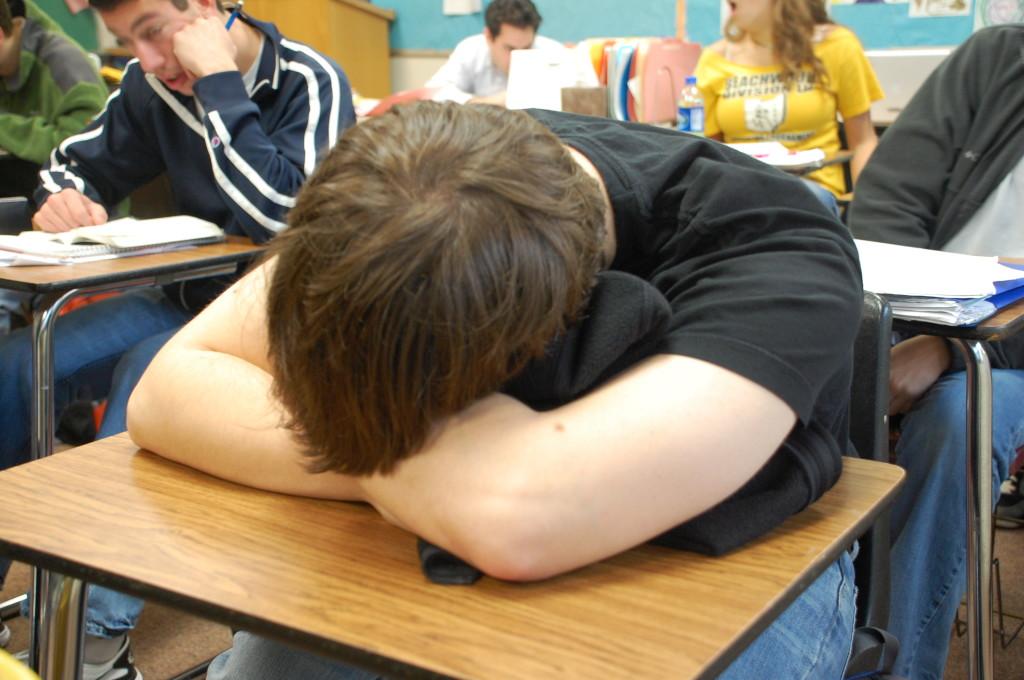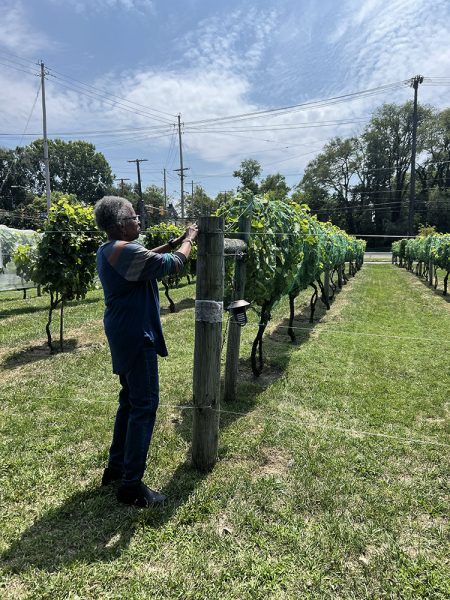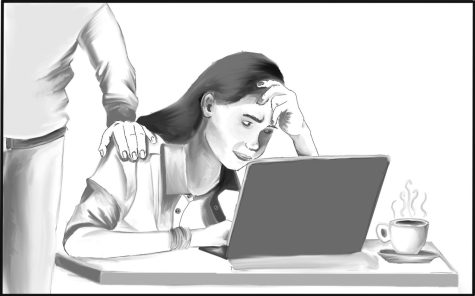Here’s Why Teenagers Don’t Get Enough Sleep
“I have to wake up at 6:00 a.m. every day,” sophomore Jacob Belleli said. “It’s not ideal. It’s a struggle to get out of bed in order to have enough time to make it to school.”
In an informal Beachcomber survey, 13 of 15 BHS students reported needing more sleep.
14 students reported that they do not get enough sleep when classes start at 7:50. On Wednesday block days, however, when classes start at 9:15, all 15 of the students reported feeling more well-rested.
“I feel like we should start school around 10,” sophomore Sanford Hong said. “I remember during OGT week, we started later, and I felt a lot better and a lot less tired during school.”
Scientific research also shows that teenagers are sleep deprived. According to the American Academy of Pediatrics, teenagers should get between 8-9 hours of sleep, and the organization has called on schools to move start times later in order to prevent what they call “a public health crisis” in chronic sleep loss in adolescents.
According to a survey of nearly 12,000 high school students by the Journal of Adolescent Health, the vast majority of teenagers get less than this amount.
According to The National Center for Education Statistics, the average high school starts somewhere between 7:00 and 8:30 a.m. A BHS student who wakes up at 6:00 a.m. would need to be asleep by 10:00 p.m. at the latest in order to meet the recommended hours.
Dr. Lynn Keefe, of Start School Later, a non-profit dedicated to trying to move the start times of schools, said that it is not realistic to expect kids to fall asleep that early.
“Unlike other kids, teenagers cannot naturally fall asleep until 10:30 or 11:00 p.m. due to that being the time when the body’s melatonin kicks in,” she said.
Keefe identifies other benefits to starting school later, including improved athletic performance for student-athletes, better grades and a decrease in depression and obesity.
Keefe said that certain societal attitudes prevent a later start. She feels the stereotype of the “lazy teenager” is misleading.
“Society isn’t aware that teens have a biological reason to stay up late and need to sleep in,” she said.
She said the benefits of a later start time become apparent when school starts after 8:30 a.m.
Kevin Kemelhar, the school psychologist at BHS, shares some of the same views as Dr.Keefe. Kemelhar cites a correlation between the amount of sleep that students get and their mental health.
“No doubt… less sleep, less on the ball,” he said. “The general ability to handle stress gets hurt with less sleep.”
Nevertheless, Kemelhar is hesitant to support a later start at BHS.
“They would have to look at everything,” he said. “I probably would support it being later if the kids’ day could end at the same time.”
Surveyed students unanimously supported moving the BHS start time to at least a half hour later.
“This would give me more time to do my homework during the year, especially during sports seasons,” sophomore Maya Granot said.
Assistant Superintendent Robert Hardis acknowledges there could be benefits to starting school later, but he also identifies difficulties in implementing this change.
“There are studies showing that high schoolers tend to be more alert later at night, and less alert in the morning…” Hardis said. “And yet, in virtually every school district across America, high schoolers start the earliest and end the earliest [compared to elementary and middle schools], and in my understanding and experience, that is driven purely by high schoolers being involved in extracurriculars like athletics, and other clubs and activities, and sometimes with jobs.”
“These jobs aren’t going to be at 10 a.m.,” he explained. “They’re going to be in the afternoons and evenings. All of those things drive the schedule of the high school day.”
“If no other considerations would be taken to account, not when our bus routes are run, not sports and extracurriculars, not student’s jobs, if none of that was an issue, I would start (BHS students) as late as you wanted, as long as you went to school for the total amount of time necessary to learn. That’s not realistic,” Hardis said.
Hardis is aware of the studies that link an earlier school start time to a number of issues, include mental health troubles and lower grades. He does, however, counter those studies with the claims of some very valid studies that show the benefits of being part of a team, extracurriculars, and even working a job.
“It is unfortunate that unless someone can come up with a way to change the length of the day, (school start time) is yet another aspect of life with costs and benefits, you weight them, but unfortunately, there is no easy solution”

Alex Cala has been writing for The Beachcomber since the fall of 2014, when he was a sophomore. He became the opinion editor the following year. Alex tends...










![“My parents have always said that education is important. My parents are Chinese immigrants, I'm Chinese American, [and that's a] value that has always been ingrained in our community,” said Senior Lyndia Zheng, pictured with Tony Zheng](https://bcomber.org/wp-content/uploads/2025/10/DSC_4244-600x400.jpg)


